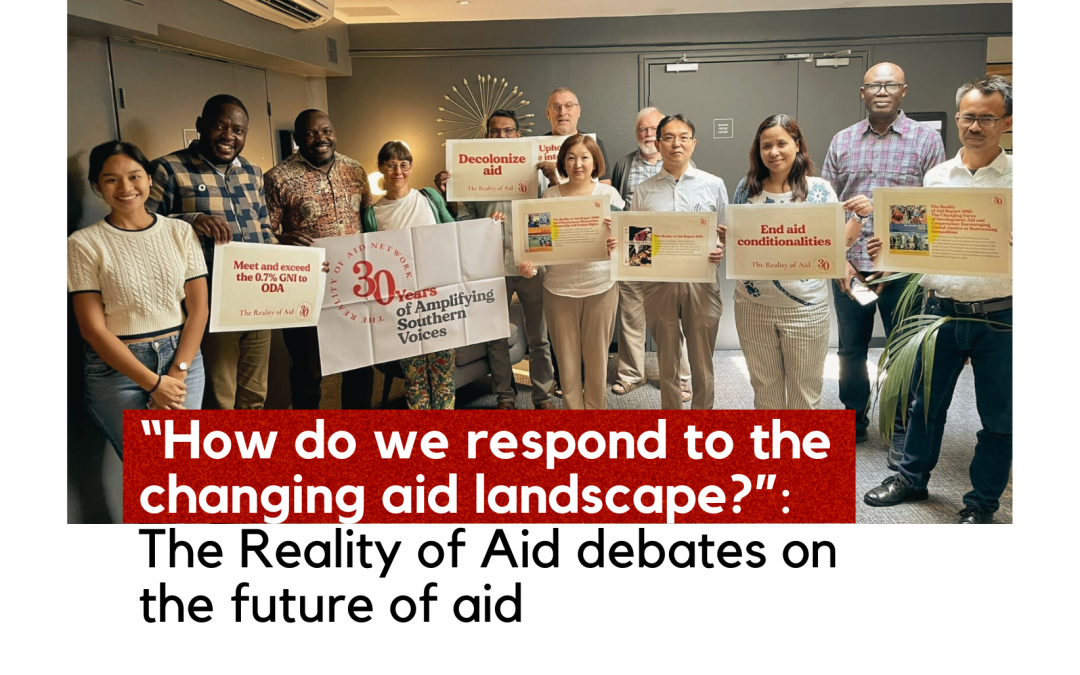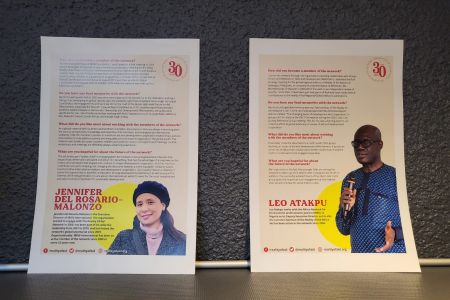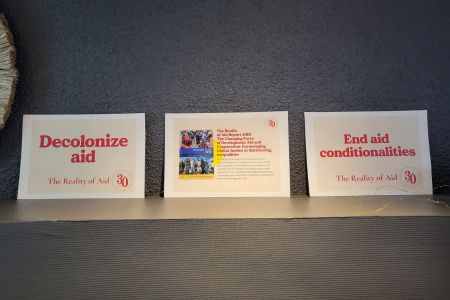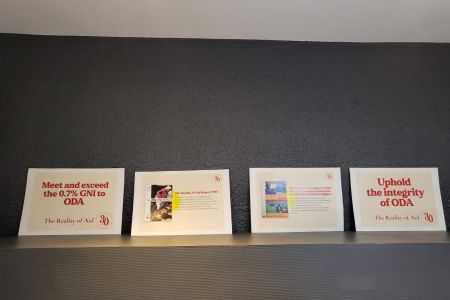In a world afflicted by multifaceted and overwhelming global challenges, civil society organizations working on aid and development cooperation continue to grapple with the question, “ How can we effectively respond to the changing aid landscape?”
This is the overarching question posed during The Reality of Aid Network’s (RoA) meeting last June 21 in Paris, France entitled, “Pushing Beyond Three Decades: The Reality of Aid’s Global North-South Caucus”. Joined by members of the network, the caucus became a common space for member organizations to brainstorm and debate on critical matters surrounding aid and development cooperation today.
Challenges in envisioning the future of aid
As the world grapples with a ‘polycrisis’ and the increasing impacts of climate change, marginalized peoples are more in need of assistance to overcome challenges that are both immediate and existential. Broad debates about reconceptualizing aid as process of decolonization; the persisting colonial patterns in development cooperation; the urgent need for new resources to fill the financing gaps to achieve Agenda 2030 and climate finance; and the essence of trust and consensus to push for aid reforms are just some of the critical matters that need unpacking to understand how the aid ecosystem can transform for the better.
Members from IBON International and EURODAD particularly highlighted the role of donors’ geopolitical and national interests in undermining their historical obligations to respond to long-term and worsening development challenges faced by the global South. In fact, the recent Preliminary 2022 ODA Figures show how geopolitical and national interests are overtly manifested through the exponential increase in in-donor refugee cost (IDRC) allocations. Many analyses find this very contentious as it largely disregards the importance of additional financing to address long-term crises (Read our latest Reality Check on the 2022 ODA Figures).
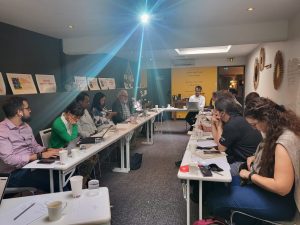
Nerea Carviotto from EURODAD and member of the International Coordinating Committee (ICC) of RoA also voiced out concerns on the increasing role of the private sector as an ‘innovative’ source of financing. The entry of private capital in development cooperation poses several challenges for CSOs and communities when it comes to tracking its effectiveness as they have been historically contributing to the violation of people’s rights and neglecting development demands of the global South.
Despite setbacks faced by CSOs across the world, there is a constant and even increasing recognition of their critical role in delivering their mandates and amplifying calls for effective development cooperation. Amidst deliberate efforts that compromise resources for aid, stronger solidarities among international CSOs, social movements, and people’s organizations are being forged as a source of energy and empowerment to continue the struggle towards people-centered development.
A strengthened engagement with the OECD-DAC and other policy spaces
With several obstacles hampering the entry and influence of civil society in crucial policy spaces, there needs to be realistic and strategic initiatives to engage with the OECD-DAC and other critical policy ecosystems.
Henry Morales from Movimiento Tzuk Kim Pop and the RoA ICC highlighted that while individual members of the network are active in the UN Financing for Development (FfD) Forum, UN Development Cooperation Forum (DCF), or the Global Partnership for Effective Development Cooperation (GPEDC), the network itself is called to escalate its participation by employing a more systematic coordination mechanism among its members, a streamlined communications strategy, and an improved set of tactics to increase public representation and presence.
Thirty years and beyond
While RoA celebrates its 30th anniversary this year, the network remains dedicated to continue its work in amplifying Southern voices. During the caucus, the network held a simple exhibit showcasing past Reality of Aid Report covers, interviews from long-time members, and calls demanding donors to uphold the integrity of ODA. The exhibit is a manifestation of the network’s long-standing dedication to raise the demands of the global South through its rigorous analyses and proactive engagements within the development cooperation arena.
As it continues to traverse the changing aid landscape, The Reality of Aid Network is motivated to establish stronger political reflections in policy arenas and influence various development cooperation spaces despite and because of deepening precarities surrounding the aid architecture. Together with the rest of civil society, RoA will continue with its conviction to advocate for people-centered and rights-based development for global South peoples.
For the network’s 30th anniversary, we will be releasing the Reality of Aid Report 2023 at the latter part of the year. It will tackle the changes in the aid and development cooperation landscape in the last 30 years, parallel with global crises experienced by the international community. To look back on past Reports and network milestones, view our “Thirty in 30: Fragments from the last three decades” series on Facebook and Twitter.

